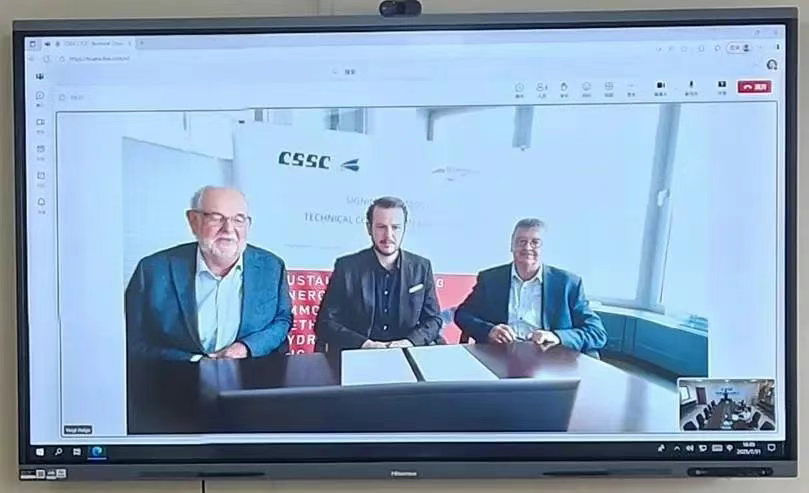China Ship Design and Research Center Co., Ltd. (CSDC) and Germany’s TECHNOLOG services GmbH (TECHNOLOG) signed a technical cooperation agreement on July 31, 2025 to jointly meet shipowners’ needs for various ship types.

As the core R&D institution of China’s shipbuilding industry, CSDC has long been committed to ship design innovation and green technology research and development. It has national-level technical reserves in the field of large commercial ship and special ship design, and undertakes many major national scientific research projects.
Founded in 1979 and headquartered in Hamburg, Germany, TECHNOLOG is an internationally renowned maritime design and consulting company. In 2007, TECHNOLOG established a professional team of design consultants and a global construction supervision team, with a joint venture in China. The team specializes in the integrated application of methanol, ammonia, hydrogen, LNG, and battery power systems, hull line optimization, sail-assisted propulsion, waste heat recovery systems and provides full-cycle technical support from conceptual design to construction supervision.

According to the “Technical Cooperation Agreement” signed by both parties, this cooperation focuses on four aspects: collaborative research and development of technologies, complementary design capabilities, linkage in market expansion, and incubation of innovative products. Combining CSDC’s local R&D capabilities with TECHNOLOG’s international experience, it will promote the development of cutting-edge technologies in the field of ship and offshore engineering. The two parties plan to jointly explore the international high-end ship market, share customer resources and industry networks, and jointly develop new products that meet international standards in emerging fields such as green ships and intelligent marine structures.
This cooperation marks the in-depth collaboration between CSDC and TECHNOLOG in the field of high-end manufacturing, responds to the IMO 2050 emission reduction target, promotes the application of green alternative fuels, and contributes to the development of green shipping under the “dual carbon” goal.


